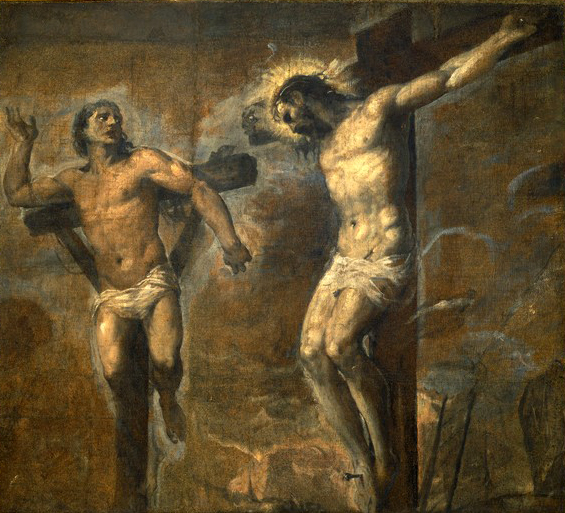- Does the patient uses religion or spirituality to help cope with illness, or is it a stressor--and how?
- Is the patient a member of a supportive spiritual community?
- Does the patient have any troubling spiritual questions or concerns?
- Does the patient have any spiritual beliefs that might influence medical care?
 |
| Titian, Christ and the Good Thief |
A few weeks ago, a video went viral on YouTube about loving Christ without religion. My parish priest had an excellent homily that week about why this makes no sense. Religion (L. religare "to re-tie") is a human virtue born of a response to God's grace. Christ calls us to Himself; we imperfectly attempt to answer. Because we keep failing, we re-tie ourselves and regulate ourselves so that we can become perfect. Religion, briefly, is the sign of love of Christ. How can we hate it? It is our cross and discipline, so that we can "run so as to win."

No comments:
Post a Comment